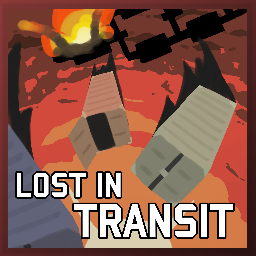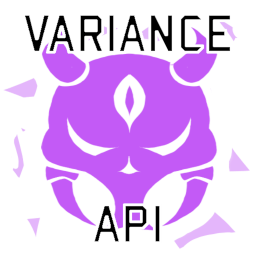MoonstormSharedUtils
An API focused with the intention of working in an editor enviroment using ThunderKit, MSU is a modular API system designed for ease of use and simplicity.
| Last updated | 2 months ago |
| Total downloads | 2803310 |
| Total rating | 34 |
| Categories | Mods Tools Libraries |
| Dependency string | TeamMoonstorm-MoonstormSharedUtils-2.5.1 |
| Dependants | 660 other packages depend on this package |
This mod requires the following mods to function
RiskofThunder-R2API_Director
API for easily modifiying the Director (RoR2 monster / interactable spawner) behaviour
Preferred version: 2.3.6RiskofThunder-R2API_Addressables
R2API Submodule for implementing Addressables functionality
Preferred version: 1.1.3RiskofThunder-R2API_Networking
Networking API around the Unity UNet Low Level API (LLAPI)
Preferred version: 1.0.3RiskofThunder-R2API_StringSerializerExtensions
Increased string serializer support
Preferred version: 1.0.0RiskofThunder-R2API_Skins
R2API Submodule for adding custom Skins and Skin-related utilities to the game
Preferred version: 1.3.1Rune580-Risk_Of_Options
A convenient API for adding BepInEx ConfigEntry's to a option menu
Preferred version: 2.8.4Smooth_Salad-ShaderSwapper
A lightweight library for upgrading stubbed shaders to actual shaders at runtime.
Preferred version: 1.0.1Nebby-LoadingScreenSpriteFix
API for adding new Loading Sprites to the Loading Screen, also fixes sprite overlapping
Preferred version: 2.0.0README
Moonstorm Shared Utils - Content Loading and General Utility Framework for Large Content Mods.
MoonstormSharedUtils, otherwise known as MSU, is an API designed to work around the ThunderKit system for creating Content Mods.
![]()
Originally part of the API and Framework built for updating Starstorm2 to a ThunderKit setup for a better development experience, it has grown exponentially into it's own separate library so anyone with the desire to create large Content mods with thunderkit can use it.
Goals of the API
MSU strifes for the following goals regarding mod development and management.
- Simple but powerful systems for managing and loading content for the game in an Asynchronous fashion.
- A robust framework built upon modules that allows you to automate various parts of the modding workflow, such as equipment execution, monster and interactable spawning, and more.
- Simplification of the ThunderKit workflow by providing a custom set of CompossableObjects for managing Manifests, Paths and Pipelines.
- A High enphasis on utilizing the systems provided by the game over hooks whenever possible, such as default provided delegates, base item behaviours, and more.
- Utilization of the Existing R2API Framework to power systems such as Director modifications.
- Emphasis on working within the Editor instead of working on code for the creation of assets.
Key Features
The IContentPiece, IContentPieceProvider and Module Framework
While Code only mods create their Content (Prefabs, ScriptableObjects, etc) at Runtime and usually at Awake, this causes the issues known as "Forever Black Screen", where most of the mod's systems are initialized before the Loading Screen of the game starts. this gives the idea that the game is frozen and not responsive to oblivious users. And while this is true, managing the loading and interactions between custom made content from Assetbundles and the game's systems is difficult.
MSU solves this by the triad of the ContentPiece, the ContentPiece Provider, and the Module framework. This triad is utilized to allow mods to Load their assets Asynchronously during the loading screen, and have them working properly with the base game's systems.
IContentPiece
- Represents some form of Content that a mod is adding
- Each ContentPiece is tied to a specific Module which handles loading and the implementation of the Content.
- ContentPieces have Availability systems, which the module uses to know what content to load and initialize.
- A ContentPiece has an Asynchronous loading method which the module uses during initialization, which is used to Asynchronously load assets for your content.
- Being an interface, the API provides further implementations:
IContentPiece<T>, which represents a Content that's tied to a specificUnityEngine.Object.- MSU includes the following interfaces that implement
IContentPiece<T>IArtifactContentPiece, forArtifactDefsIEquipmentContentPieceforEquipmentDefs- A sub-interface called
IEliteContentPiecemanagesEliteDefsassociated to a specific Equipment.
- A sub-interface called
IItemContentPieceforItemDefs.- A sub-interface called
IVoidItemContentPiecemanages the Item Corruption system added in Survivors of the Void.
- A sub-interface called
IItemTierContentPieceforItemTierDefsISceneContentPieceforSceneDefs.
- MSU includes the following interfaces that implement
IGameObjectContentPiece<TComponent>, which represents a Content that's tied to a specific type ofUnityEngine.MonoBehaviour- MSU includes the following interfaces that implement
IGameObjectContentPiece<TComponent>ICharacterContentPieceforCharacterBodies- The sub-interface called
IMonsterContentPiececan be used for managing hostile monsters - The sub-interface called
ISurvivorContentPiececan be used for managing new Survivors.
- The sub-interface called
IInteractableContentPieceforInteractables.
- MSU includes the following interfaces that implement
IVanillaSurvivorContentPiece, which represents modifications for a Vanilla survivor.
IContentPiececlasses can also implement theIContentPackModifier, which is used for directly interfacing with your mod's ContentPack.
Modules
- A Module is a class that manages the loading and interaction of
IContentPiececlasses with the base game. - Each Module handles a specific type of Interface, alongside possible sub-interfaces.
- The Module knows what classes to instantiate and initialize utilizing the
IContentProvidersystem. - Once you provide a
IContentProviderto a module, you can call it'sInitializemethod to get back a Coroutine that'll initialize your content in an Asynchronous fashion. - MSU supplies the following modules:
ArtifactModule, managesIArtifactContentPieces, the ArtifactModule interfaces withR2API.ArtifactCodeto add new Artifact Codes to the game. It'll also handle proper hooking and unhooking of the Artifact, so that only when the artifact is enabled it's hooks are enabled.CharacterModule, managesICharacterContentPiece,ISurvivorContentPieceandIMonsterContentPiece, the module interfaces withR2API.Directorto handle the spawning of Monsters for the stages of the game.EquipmentModule, managesIEquipmentContentPieceandIEliteContentPiece, the module utilizes a single hook for managing the Execution calls for the Equipments.InteractableModule, managesIInteractableContentPiece, the module interfaces withR2API.Directorto handle the spawning of Interactables for the stages of the game.ItemModule, managesIItemContentPieceandIVoidItemContentPiece. It automatically handles item corruptions.IItemTierModule, managesIItemTierContentPiece, it automatically creates at run start collections of the available drop list for the tier.SceneModule, managesISceneContentPiece, it interfaces withR2API.Stagesto handle the addition of a Stage to the game.VanillaSurvivorModule, managesIVanillaSurvivorContentPiece. which is used to add new content to the base game's survivors (Skins, skills, etc.)
IContentPieceProvider
- For a module to know what content pieces to create, load and initialize. MSU utilizes the
IContentPieceProviderto provideIContentPieces to modules.- While you can create your own implementations of the
IContentPieceProviderinterface to manage availability scenarios, MSU'sContentUtilclass contains methods for creating them from scratch, by only analyzing your Assembly.
- While you can create your own implementations of the
RoR2 Friendly Systems
One of the key goals of MSU is working alongside the Risk of Rain 2 systems, making content that works with it instead of forcing the base game's systems to work with ours. As such, MSU provides a robust system to interact alongside the game's key systems such as equipments, buffs, items, and more.
Interfaces for Components
To avoid unecesary hooking for commonly used types, MSU provides interfaces that can be used inside components for the following systems:
IOnIncomingDamageOtherServerReciever, it works as a hook on TakeDamage, which can be utilized to modify the incoming damage for a victim.IStatItemBehaviour, an interface that works as an On hook for Recalculate Stats, containing methods for running before and after stat recalculations.IBodyStatArgModifier, an interface that works as an implementation ofR2API.RecalculateStats's GetStatCoefficient delegate.
BaseItemMasterBehaviour
The BaseItemMasterBehaviour, much like it's Body counterpart (BaseItemBodyBehaviour) is utilized for creatinng a behaviour that's added to a CharacterMaster when a specified item is obtained.
BaseBuffBehaviour
The BaseBuffBehaviour is a component that can be used for managing the effects of a Buff. For performance reasons, BaseBuffBehaviours are not destroyed when the buff gets removed, instead, when the buff is first obtained by a body, the behaviour is added, when the buff stacks are depleted, the behaviour is disabled, afterwards, when the body recieves the buff again, the behaviour is enabled. this reduces the workload of the GarbageCollector and overall improves the performance of the system.
Improved Thunderkit Workflow:
As MSU's goals revolve around working in the Editor, MSU comes bundled with a multitude of utilities regarding the creation of content for the game.
WWise Support
MSU provides a custom ImportExtension that can be used to blacklist the WWise assemblies from the game, allowing you to use the WWise Integration system for your project.
Scriptable Objects
MSU provides the following ScriptableObjects that allows for the creation of "runtime only" content at Editor time.
AchievableUnlockableDef, works as an abstraction of the UnlockableDef and AchievementDef system, its anUnlockableDefthats unlocked via an achievement.DotBuffDef, works as an abstraction of the DotDef, and automatically assigns a DotDef to its specified BuffDef.ExtendedEliteDef, works as an extension of theEliteDefclass, supporting automatic addition to base game tiers, elite ramps, overlay materials, and more.InteractableCardProvider, a ScriptableObject that contains the metadata needed for spawning Interactables in stages, multiple stages can be assigned to a single card.MonsterCardProvider, a ScriptableObject that contains the metadata needed for spawning Monsters in stages, multiple stages can be assigned to a single card.ItemDisplayAddressedDictionary, a ScriptableObject that works akin toR2API.Items's ItemDisplayDictionary system, it can be used for adding multiple RuleGroups to existingItemDisplayRuleSets, the DisplayPrefabs can be loaded via address and the ItemDisplayRuleSets are loaded via Addressables.SerializableEliteTierDef, works as an Abstraction of theEliteTierDefsystem within the game, can assign a cost multiplier, addressable references to base game elite tiers and mode.UberSkinDef, works as a catch-all utility for SkinDefs, implementing support for R2API's SkinVFX system and adding skins to vanilla character
Prebuilt CompossableObjects
Since MSU was created with thunderkit in mind, MSU provides the following CompossableObjects to your project:
- A simple
Manifestwith the necesaryManifestDatumsfor declaring your mod - A setup of
PathReferences that's used for clean building and releasing of your mod - A highly configurable Pipeline system:
- A release pipeline that automatically builds a zip file ready for release of your mod.
- Generic pipelines, which can be used to build your assembly, build your assetbundles either compressed or uncompressed, and staging your mod's StreamingAssets.
- A Contributor pipeline setup, which contributors can use to easily setup a pipeline for building your mod.
Management of Configurations and Tokens
Creating configuration for your mod can be extremely verbose using the default BepInEx implementations, MSU implements a Configuration system on top of BepInEx that allows you to easily configure anything.
ConfigureField, ConfiguredVariable, and Risk of Options
MSU provides the following abstraction of the BepInEx Config System:
-
ConfigureField- A custom attribute that can be applied to static fields to automatically configure them.
- The configuration process utilizes a unique string ID that you assign to a custom ConfigFile to tie the configuration to the ConfigFile.
- The
ConfigSectionandConfigNamesare not necesary to be implemented, MSU by default utilizes theMemberInfo's name as theConfigName, and theDeclaringType's name as theConfigSection - A "RiskOfOptions" version of the ConfigureField exists, which automatically creates options utilizing the RiskofOptions API. These options however cannot be heavily customized due to the limitation of attributes.
-
ConfiguredVariable- The ConfiguredVariable is a class that represents a Variable that can be Configured.
- it can be used for creating complex configuration scenarios with Risk of Options.
The FormatToken system
Tying Configuration changes to Token values is one of the best parts of creating tokens using code, however, translation of these tokens can be difficult to manage as it requires translators to code the translations directly into the C# source file.
MSU provides the FormatToken system, you can now write your token's values utilizing the String Formatting system of C#. With this, you can properly levrage JSON langauge files, which translators can easily use for translations as long as they keep the proper order of indexing.
Documentation and Sourcecode
- The Documentation and Sourcecode can be found in MoonstormSharedUtil's Github Repository, which can be found here
Donations
MSU is a passion project from one of TeamMoonstorm's members, Nebby. as such, he works in his free time on this to allow the rest of the community to create amazing and awe-inspiring content.
MSU will forever be free to use and never gated behind paywalls, however, donations are incredibly appreciated.
Mods Utilizing MSU
(Click me!)
(Note: click the icon to open a new tab to the Mod!)
Thanks and Credits
- Twiner for the creation of ThunderKit.
- IDeath and Harb for helping out with various coding questions.
- KingEnderBrine and RuneFox237 for the RoR2SkinBuilder, which was used as a base for the VanillaSkinDef system.
- GrooveSalad for helping out during the conceptualization of the module system and providing the StubbedShaders.
- UnknownGlaze for MSU's Logo
- The Starstorm 2 Team, for allowing nebby to go off the deep end and create MSU in the first place.
- The Fortunes from the Scrapyard team, for believing in my goals and utilizing MSU for their mod.
- KevinFromHPCustomerService, for creating the original modules systems that eventually became MSU 2.0
- Everyone from the Risk of Rain 2 community for appreciating my work.





